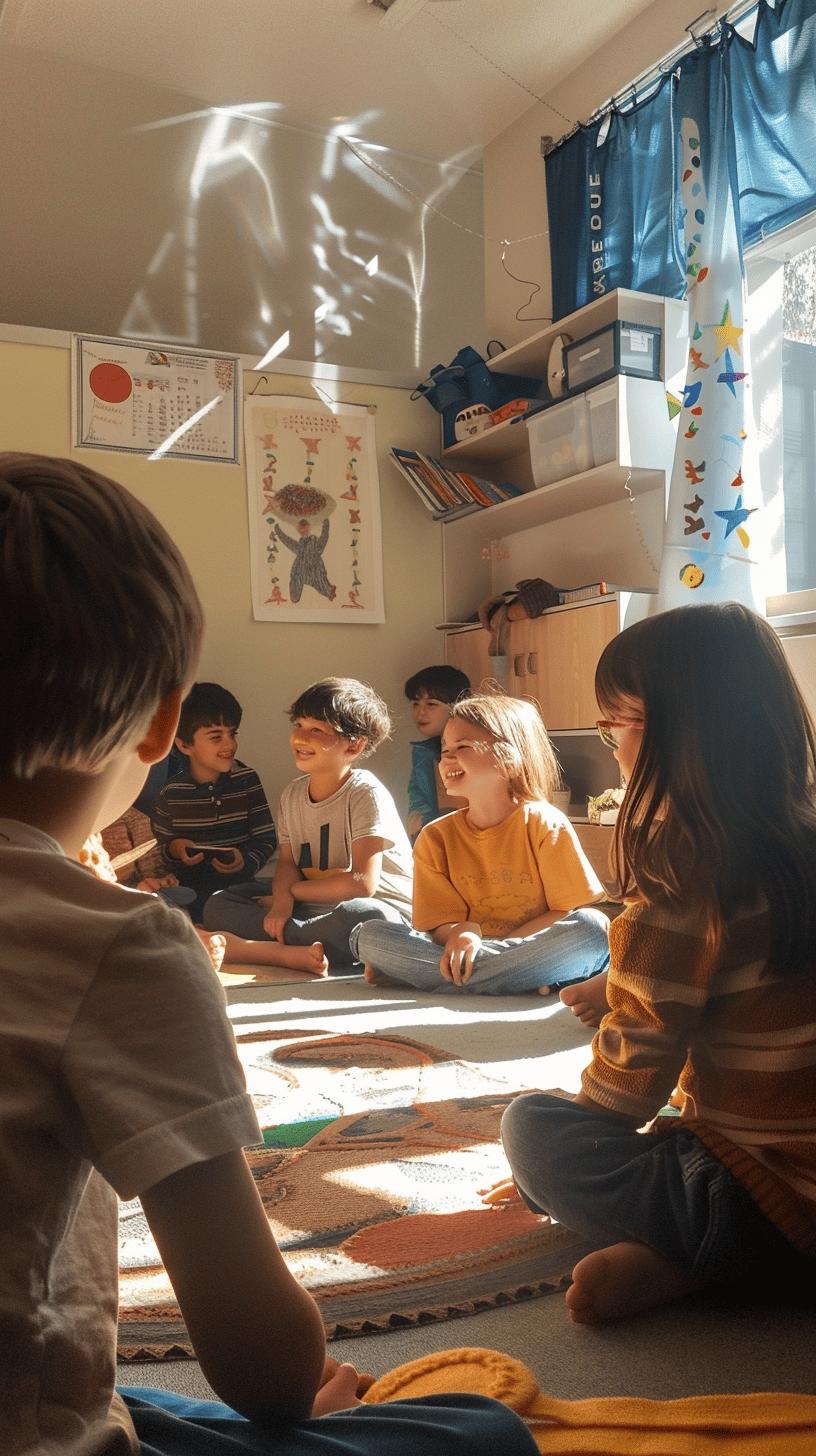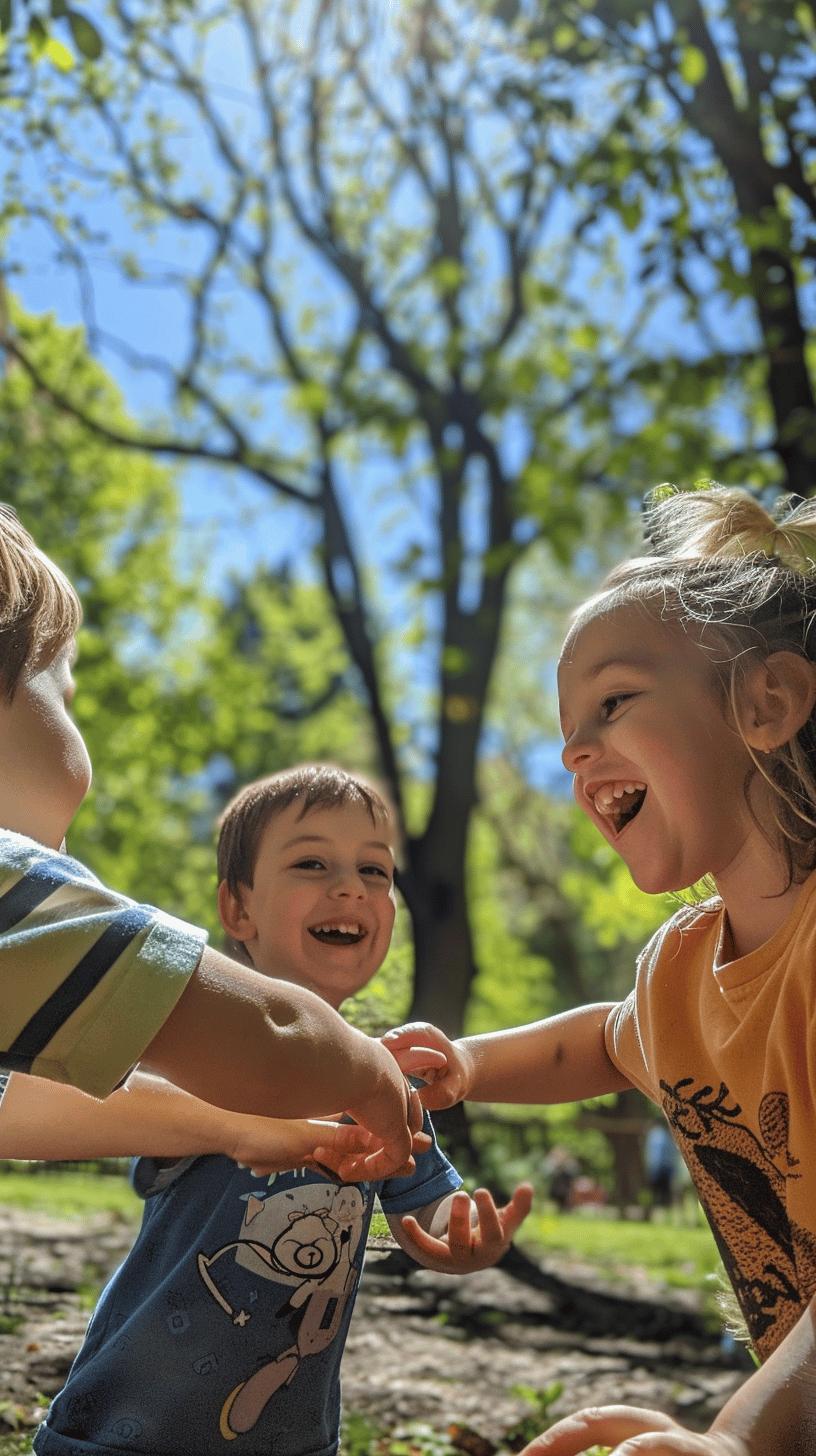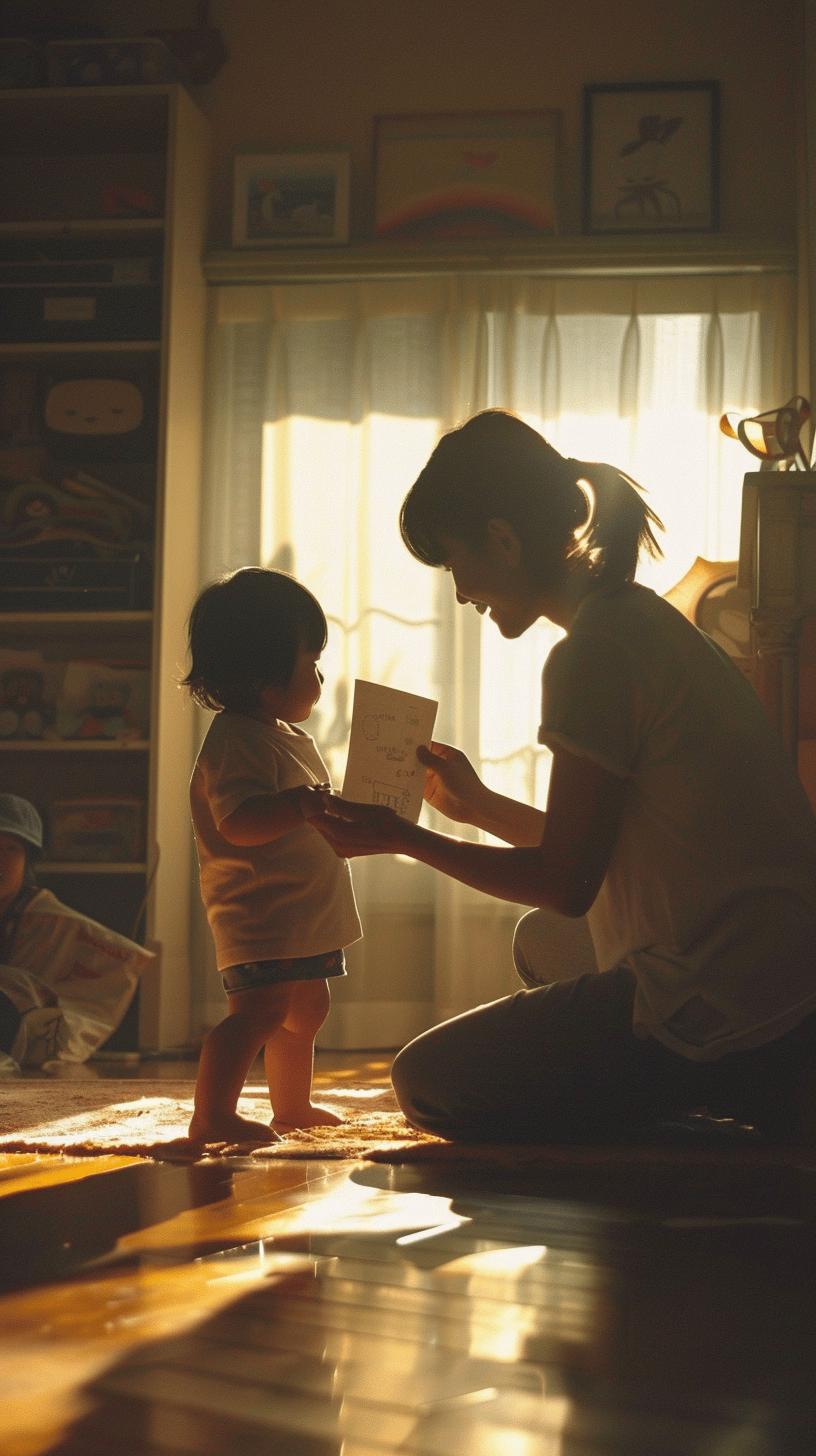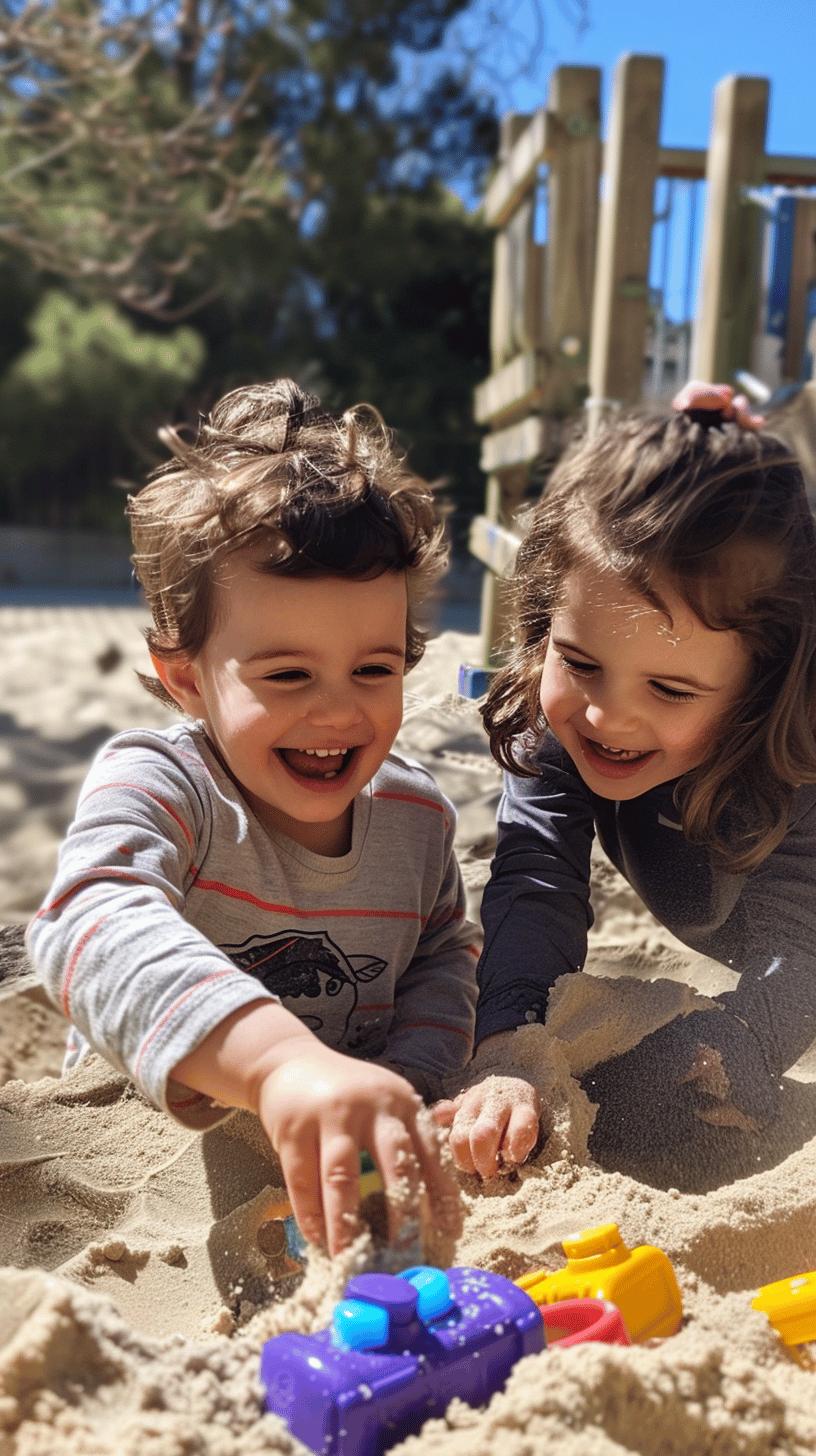10 Ways to Help Children Develop Social Skills
Ever wonder why some kids seem to effortlessly make friends while others struggle? Social skills aren't just something children are born with—they need to be nurtured and developed, just like any other ability.
In this blog post, we'll uncover 10 simple yet effective ways to help your child connect with others.
From playful activities to everyday conversations, these tips aim to make socializing as natural as possible for your little ones. Hoping these tricks help your kids better navigate their social worlds one step at a time!
Encouraging Communication in Children
Communication is the backbone of social skills, and it includes verbal, nonverbal, written, and visual methods. For children, learning to communicate effectively is crucial for building relationships and navigating social situations. Encouraging children to express themselves through words or actions is essential. It helps them articulate their thoughts and feelings, making it easier to connect with others.
One way to enhance communication skills is by incorporating activities that require interaction. Group playdates, board games, and team sports are excellent for this. These activities not only teach children how to communicate but also how to cooperate and share. Additionally, teaching children to ask questions can make it easier for them to initiate and maintain conversations.
Activities to Enhance Communication Skills:
- Reading Books: This builds vocabulary and engages children in conversations about the story.
- Talking About Daily Activities: Discussing what happened during the day helps kids articulate their experiences.
- Singing Songs: Engaging in songs expands vocabulary and understanding of rhythm and language.
- Board Games: These require turn-taking and verbal interaction, promoting communication.
- Group Playdates: Socializing with peers in a structured setting encourages verbal and nonverbal communication.
These activities contribute significantly to social skill development. By reading books and discussing daily activities, children expand their vocabulary and learn to express themselves better. Singing songs adds an element of fun while improving language skills. Board games and group playdates provide practical settings for children to practice their communication skills, teaching them how to interact with others effectively. Through consistent practice, these activities help children become more confident and capable communicators.
Teaching Empathy to Kids

Empathy is a crucial social skill that enables children to understand and respect other people's boundaries and personal space. It helps them connect with others on a deeper level, promoting kindness and cooperation. When kids learn to empathize, they're better equipped to handle social interactions and conflicts.
One effective way to teach empathy is through role-playing activities. These exercises allow children to practice social interactions, focusing on understanding body language and maintaining eye contact. Another helpful method is discussing various situations and how different people might feel in those scenarios. This not only fosters empathy but also helps children learn to actively listen and consider the speaker's words after a conversation. Respect for diversity is another important aspect; teaching kids to appreciate different backgrounds and cultures can significantly enhance their empathetic abilities.
| Activity | Empathy Skill |
|---|---|
| Role-Playing | Understanding body language and eye contact |
| Discussing Feelings | Recognizing and articulating emotions |
| Listening Exercises | Active listening and considering others’ perspectives |
| Diverse Storytelling | Appreciating different backgrounds and cultures |
| Empathy Games | Practicing kindness and cooperative behavior |
Empathy significantly influences social interactions by helping children understand and react appropriately to the emotions and needs of others. When kids practice empathy through role-playing and discussing feelings, they become more adept at navigating social complexities. Listening exercises teach them to be attentive and considerate, while diverse storytelling broadens their understanding and appreciation of different cultures. By integrating these activities into their daily routines, children can develop strong empathetic skills that will benefit them throughout their lives.
Role-Playing and Social Scenarios
Role-playing is a fantastic way for children to practice social interactions in a safe and controlled environment. It helps them learn to use polite language, make eye contact, and understand the flow of a conversation. Through role-playing, kids can experience various social scenarios, such as greeting someone new, sharing toys, and resolving conflicts, without the pressure of real-life consequences. By rehearsing these situations, children become more confident and better prepared for actual social interactions.
Role-Playing Scenarios and Games:
- Greeting Someone New: Practice introductions and friendly greetings.
- Sharing Toys: Role-play situations where children take turns with toys.
- Resolving Conflicts: Act out scenarios where children must solve disagreements.
- Using Polite Phrases: Encourage the use of "please," "thank you," and "excuse me."
- Playing Board Games: Games that require turn-taking and cooperation.
- Pretend Play: Activities like playing house or school to practice everyday interactions.
These activities are great for promoting social skills. By greeting someone new, kids learn the basics of polite conversation. Sharing toys teaches the importance of taking turns and being considerate. Resolving conflicts helps them handle disagreements constructively. Using polite phrases instills good manners, while board games and pretend play offer fun ways to practice cooperation and communication. Overall, these role-playing exercises can significantly enhance a child's ability to interact socially.
Encouraging Group Activities and Playdates

Group activities and playdates are fantastic opportunities for children to engage with their peers and develop essential social skills. These interactions help kids learn how to communicate, cooperate, and navigate social dynamics. By participating in group activities, children can practice sharing, taking turns, and understanding different perspectives. These experiences are crucial for building friendships and enhancing social development.
Activities like team sports and cooperative games are particularly effective in promoting social skills. Team sports teach children about teamwork, perseverance, and how to work towards a common goal. Cooperative games, on the other hand, require kids to collaborate and problem-solve together. Both types of activities encourage communication and cooperation, providing a fun and engaging way for children to practice their social skills.
Tips for Organizing Successful Playdates:
- Follow Their Interests: Plan activities that your child is genuinely interested in to keep them engaged.
- Structured Yet Flexible: Provide a mix of organized activities and free play to balance structure and creativity.
- Small Groups: Start with smaller groups to avoid overwhelming shy or introverted children.
- Set Clear Expectations: Explain the rules and expectations beforehand to ensure a smooth playdate.
- Encourage Participation: Gently encourage all children to participate, respecting their comfort levels.
The benefits of these group activities and playdates extend beyond just fun. They help children build confidence, improve their communication skills, and learn to navigate social settings effectively. When kids engage in activities they are interested in, they are more likely to participate actively and enjoy the experience. Structured yet flexible environments allow children to practice social skills in a safe and supportive setting, making these activities invaluable for their overall social development.
Building Conflict Resolution Skills
Conflict resolution skills are essential for children as they navigate social interactions. These skills help kids address disagreements constructively, promoting harmony and understanding among peers. By teaching children how to effectively resolve conflicts, we equip them with the tools to handle various social situations with confidence and respect.
Strategies for Teaching Conflict Resolution:
- Active Listening: Encourage children to listen to each other without interrupting, ensuring they understand the other person's perspective.
- Compromise: Teach kids the value of finding a middle ground where both parties can agree.
- Role-Playing Scenarios: Practice conflict resolution through role-playing different situations, allowing children to rehearse and understand various outcomes.
- Positive Reinforcement: Praise and reward children when they resolve conflicts peacefully, reinforcing the behavior.
- Assertiveness Training: Help children learn to express their needs and feelings assertively without being aggressive.
These strategies are crucial for helping children manage conflicts and build social skills. Active listening fosters empathy and understanding, while compromise teaches the importance of mutual agreement. Role-playing scenarios provide a safe space for children to practice and learn from their experiences. Positive reinforcement encourages kids to continue resolving conflicts peacefully, and assertiveness training builds their confidence in expressing themselves. Together, these strategies create a solid foundation for children to navigate social interactions successfully and respectfully.
Using Positive Reinforcement Techniques

Positive reinforcement is a powerful tool in helping children develop social skills. By providing rewards or praise for desired behaviors, we encourage children to repeat those actions. Praising specific social behaviors like sharing, cooperating, and communicating can be particularly effective. When praise is specific, immediate, and consistent, children understand exactly what behavior is being encouraged, making it more likely they will continue to exhibit it. Positive reinforcement also boosts children's confidence and motivates them to engage more socially, knowing their efforts are recognized and valued.
Positive Reinforcement Techniques:
- Be Specific: Praise specific behaviors, such as "I love how you shared your toys with your friend."
- Immediate Praise: Offer praise right after the behavior to reinforce it effectively.
- Consistency: Be consistent with your praise to help children understand the importance of the behavior.
- Use Rewards: Small rewards like stickers or extra playtime can be effective.
- Encourage Self-Praise: Teach children to recognize and praise their own positive behaviors.
- Identify Emotions: Help children identify and express their emotions, praising them when they do so appropriately.
These techniques are essential for helping children develop social skills and build confidence. By being specific with praise, children know exactly what they did right, reinforcing the behavior. Immediate praise helps them connect the reward with the action, making it more meaningful. Consistency ensures that children understand the ongoing importance of their actions. Using rewards can add an extra layer of motivation, while encouraging self-praise fosters independence. Helping children identify and express their emotions ties their feelings to their actions, promoting emotional intelligence alongside social skills.
Final Words
In the action of encouraging communication, empathy, and conflict resolution skills among kids, we've dived into various methods like group activities, playdates, and role-playing.
These strategies are some of the best ways to help children develop social skills.
By integrating these activities into their daily lives, you're not just teaching them to communicate better; you're also helping them build confidence and form strong relationships.
Kids will thrive when they feel understood and capable.
Embrace these tips and watch your children bloom socially!
FAQ
How to improve a child's social skills and relationship with peers?
Improving a child's social skills involves encouraging communication, empathy, and participation in group activities like playdates and team sports.
How to help children develop social skills in school and the classroom?
In school, children can develop social skills through group projects, class discussions, and cooperative games that require teamwork and communication.
How to help children develop social skills at home?
At home, engaging in family games, encouraging open communication, and modeling positive social behaviors can help children build social skills.
How to develop social skills in a child with autism?
Children with autism can benefit from structured social skill training, role-playing activities, and consistent practice with communication techniques tailored to their needs.
How to improve social skills for teenagers?
Teenagers can improve social skills by participating in extracurricular activities, joining clubs, and engaging in group discussions that promote teamwork and communication.
What promotes social learning in child development?
Social learning is promoted by activities that encourage interaction, empathy, cooperation, and communication, such as playdates, team sports, and family discussions.
How can a child develop socially?
A child can develop socially by engaging in group activities, learning empathy through role-playing, and practicing effective communication skills.
How can students develop social skills?
Students can develop social skills by participating in collaborative classroom activities, joining school clubs, and practicing problem-solving and conflict resolution.







